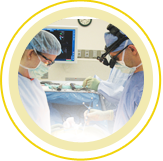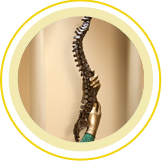Noticing some discomfort in your lower back recently? Finding it a bit more challenging to get up from a chair or bend over to pick something up? It might be a good time to check in with your weight, as those extra pounds can sometimes add up without us realizing. Taking proactive steps to address obesity can help support your spine and overall well-being.
Increased Risks of Back Pain
Not only is obesity associated with back pain, but any excess weight can increase the amount of time needed to recover after a bout with back pain.
The statistics regarding individuals with obesity or a high body fat percentage indicate:

- 33% are at a higher risk of experiencing back pain.
- 35% are at a higher risk of experiencing severe or intense back pain.
- Up to 43% a higher risk of developing chronic back pain.
- For men, up to 50% are at a higher risk of developing a disability.
- For women, 100% are at a higher risk of developing disability and function limitations.
What Are the Specific Ways Obesity Affects Your Spine?
Every pound we carry around adds extra stress to our muscles, ligaments, and bones in our back.
Extra Stress
This extra stress results in compression of the spine especially in the lower back or lumbar region.
Pressure on Discs
The discs act as shock absorbers, but they can become compressed and degenerate or herniate. This results in pain and nerve compression.
Affects Alignment
Weight, especially in the abdomen, causes the spine to tilt. It will begin to develop abnormal curves or rounding of the upper back causing extra pressure on the sacroiliac joints. Poor posture also contributes to back pain.
Risks of Injury and Other Conditions
It is possible to develop sciatica, herniated discs, spinal stenosis, osteoarthritis, degenerative disc disease, all adding pain and resulting in limited mobility.
What Are Strategies to Protect Your Spine?
There are multiple ways to combat back pain. Losing some weight is the best way to support your spine health and reduce any back pain.
- Start by eating smart. Reduce or eliminate processed foods from your diet, sweets, and reduce alcoholic drinks.
- If you need to lose a lot of weight, there are FDA approved drugs and surgical procedures for weight loss now. Talk to your healthcare provider about which one might be best for you.
- There are medically-supervised weight loss programs and exercise.
- Begin some cardiovascular exercise several times a week. Try yoga and pilates.
- Quit smoking!
If you are carrying more weight than you should, you are not alone. Don’t beat yourself up, don’t give up, and most of all, don’t do nothing. Your back pain will not go away on its own. You have many options now to lose weight.
Chronic Back Pain Treatment in High Point and Greensboro, NC
Contact Spine & Scoliosis Specialists at 336.333.6306 for help with chronic back pain and recommendations for better spine health.



